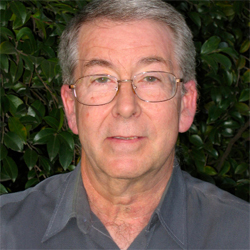The Rolf Schock Prize in Mathematics 2011 has this week been awarded to Michael Aschbacher "for his fundamental contributions to one of the largest mathematical projects ever, the classification of finite simple groups".

Michael Aschbacher
Finite simple groups are the basic building blocks of the mathematical description of symmetry. At over 10,000 pages, spread across 500 or so journal articles, by over 100 different authors from around the world, the proof of the classification was without precedent, and must be counted the longest in history. You can find out more in the Plus article An enormous theorem.
Michael Aschbacher is the Shaler Arthur Hanisch Professor of Mathematics at the California Institute of Technology. He has made fundamental contributions to group theory, especially regarding the classification of finite simple groups. He was awarded the Cole Prize by the American Mathematical Society in 1980, and became a member of the United States National Academy of Sciences in 1990.
The Rolf Schock Prizes are triennial and are awarded in the fields of logic and philosophy, mathematics, the visual arts and the musical arts. Each prize amounts to USD 75,000. The prizes are awarded by The Royal Swedish Academy of Sciences, The Royal Swedish Academy of Fine Arts and The Royal Swedish Academy of Music. The prize award ceremony will take place in Stockholm, Sweden, on 2 November 2011.
The three other laureates 2011 are the violinist and conductor Andrew Manze, who is awarded The Rolf Schock Prize in the Musical Arts, the painter Marlene Dumas, who is awarded the prize in the visual arts and Professor Hilary Putnam, who is awarded the prize in logic and philosophy, as has been previously announced.